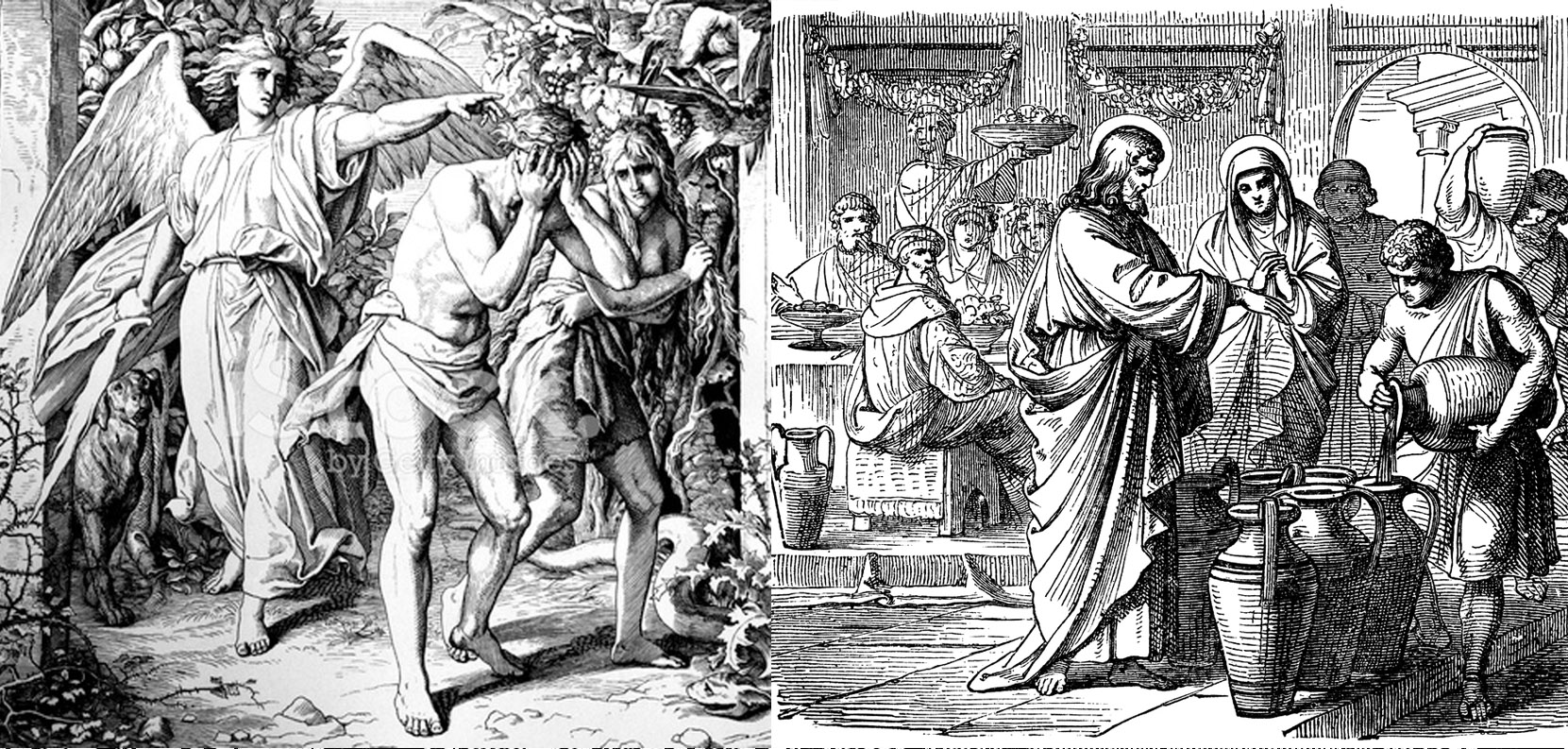These are different contexts: the Romans 5:12 is a general, universal, ontological context, in which Adam stands both for the concrete man and for the representative of the entire human nature (with no sexual distinction) that was infected through his sin for all generations that came after him; the same ontological significance is put in understanding of Christ as Second Adam (1 Cor. 15:45) who healed the fallen humanity in entirety, with no distinction of male and female (Gal.3:28). Thus, when speaking of "Adam" in this universal, ontological sense, there is no need to mention also Eve, for this "Adam" includes her as well, for the very broadness and generality, and the very ontological dimension of the term "Adam" as expressing the entire human nature, makes a mention of sexual difference absolutely redundant, for sexual difference does not even in a tiny bit affect the absolute unity of the nature of male and female, expressed here by one word "Adam".
On the contrary, in 1 Timothy 2:14 the context is more limited, almost cultural-ethnographic, for Paul wants simply to maintain order and subordination in church and deter women from being noisy or desirous to outshine each-other by their clothes or jewelry rather than by inner dignity, godliness and good deeds (1 Tim. 10), so he uses as an additional argument in a proleptic manner that women are weaker than men (as Peter also calls women "weaker vessels" /1 Peter 3:7/), as proven also by the fact that their prototype - Eve - was first to be seduced by the serpent, and therefore wives should obey husbands. Would Paul say the same to St. Thekla whom he Christianized and who became a preacher and apostle of Christianity? Like, "Dear Thekla, I know that you are stronger in Christ and more wise than majority of Christian men, but still do not talk or educate anyone in Church for you are a woman!"? - it is stupid even to suppose it. So, Paul is not speaking about women in general, but about concrete worldly women of a concrete Christian community, just to harness somehow their worldliness also by an additional, side argument driven from the story of Genesis.
Moreover, the eating of the forbidden fruit is not yet a fall, for it was next followed by God's questioning Adam and Eve, and had they repented, He would have forgiven them. However, both Eve and Adam started to accuse Him: Eve saying that a serpent created by Him seduced her, and Adam - that a woman whom He has given him seduced him (Gen. 3:13), thus, of course, only God was guilty and liable, not them! Because of this unrepentant and stupidly stubborn disposition they were expelled from paradise. Therefore, eating the forbidden fruit is not about the fall itself, for there was still a space for repentance left, which was not used by the ancestors of all humans.
Thus, also Paul's instructions in 1 Tim. do not deal with the fall, but with the fact that woman was more prone to being seduced because of her weakness in comparison to man, as it was a commonplace idea in antiquity and late antiquity, in which time Paul wrote his letters being fully conscious of and bearing himself the conventional ideas of the time, unanimously accepted by all as being true.* And even this serves as a very specific, contextual and cultural-ethnographical argument, not touching that ontological and all-humanity inclusive dimension as in Romans.
*Whether women are not only conventionally but also naturally weaker than men in certain sense, is a question I am not dealing here, for it is not relevant for this discussion; but that there is a certain physical superiority of men over women engrained in nature itself is for me as clear as day, for all male and female sports are strictly divided, and time passes and nothing changes with this regard. I admit I may be mistaken though, and am sure feminists will hate me, but I will not sacrifice my sincerity and feel of truth even to delicacy, to say nothing about political correctness, for it is a modern-day dangerous heresy to absolutize the demands of political correctness even at expense of truth, killing in human what is most important: the feeling of sincerity, which is absolutely necessary for breeding the feeling of self-esteem and dignity also.
